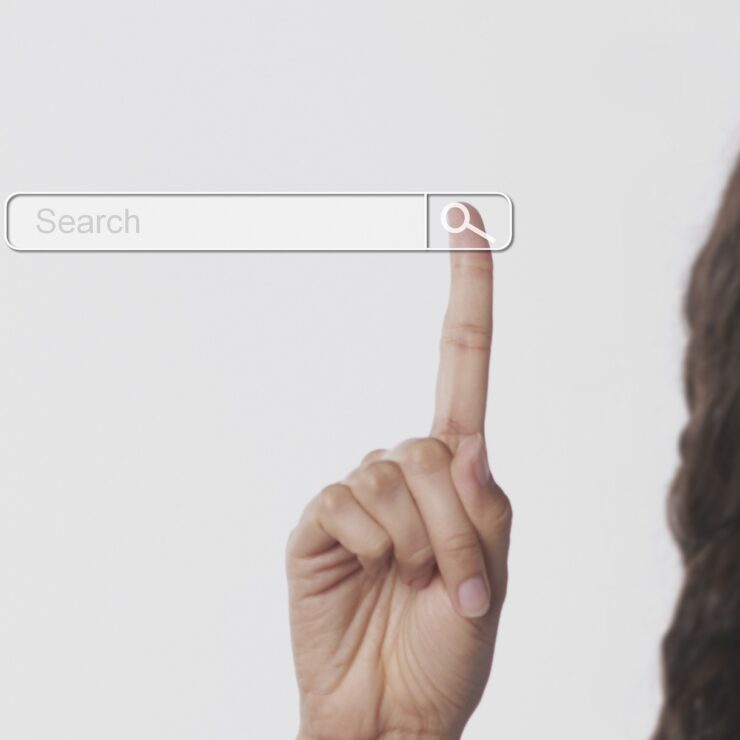Whitelisting has become a buzzword in the world of influencer marketing. But what exactly is it and why is it important? In short, whitelisting is the process of granting permission for certain content to be promoted on a social media platform.
By whitelisting content, brands can ensure that their influencer partners are able to promote their products or services to a targeted audience. By working with influencers who have a strong following within a particular community, brands can leverage the power of social media to get their message in front of the right people.
Definition of Whitelisting in Influencer Marketing
Whitelisting is a practice in influencer marketing where a brand grants a specific influencer or a group of influencers permission to promote their products or services on social media platforms. This permission is granted by the brand to the influencer’s social media account, allowing them to bypass certain restrictions on the platform.
Whitelisting is a mutually beneficial practice for both the brand and the influencer. The brand benefits from increased exposure and credibility through the influencer’s audience, while the influencer benefits from the ability to promote the brand’s products without restrictions.
Whitelisting is often used in conjunction with other influencer marketing strategies such as sponsored posts and product reviews. By allowing influencers to promote their products without restrictions, brands can ensure that their message reaches a wider audience and is delivered in a more authentic and genuine way.
Overall, whitelisting is a powerful tool in influencer marketing that can help brands reach their target audience and build trust and credibility with their customers.
Also See: Top Social Media Optimization Tools
Importance of Whitelisting in Influencer Marketing
Whitelisting is an essential practice in influencer marketing that allows brands to ensure that their ads are shown only to the target audience. By adding approved influencers to a whitelist, brands can be confident that their ads will only appear on the influencer’s page and not on any other pages that may not be relevant to the brand’s target audience.
Whitelisting can also help to prevent fraudulent activities such as fake followers, fake likes, and comments. By limiting the influencers who are allowed to promote their brand, brands can ensure that they are working with genuine influencers who have a real following and engagement.
Furthermore, whitelisting can help to increase the effectiveness of influencer marketing campaigns. By working with influencers who have an audience that matches the brand’s target audience, brands can increase the chances of their ads being seen by potential customers who are more likely to be interested in their products or services.
In conclusion, whitelisting is an essential practice in influencer marketing that can help to ensure that ads are shown only to the target audience, prevent fraudulent activities, and increase the effectiveness of campaigns.
How Whitelisting Works in Influencer Marketing
Whitelisting is a process in influencer marketing where brands grant permission to specific influencers to create and distribute content on their behalf. This process gives brands more control over the content and ensures that the content aligns with their brand values and messaging.
The Agreement Process
Before the content creation process begins, brands and influencers must agree on the terms of the campaign. Brands may also provide influencers with a list of approved hashtags, captions, and other messaging to ensure that the content aligns with their brand.
Content Creation and Approval
Once the agreement is in place, the influencer creates the content according to the brand’s guidelines. The content is then submitted to the brand for approval. Brands review the content to ensure that it aligns with their values and messaging. If the content requires changes, the influencer will make the necessary adjustments until the brand approves the final version.
Distribution and Amplification
After the content is approved, the influencer distributes it on the agreed-upon platforms. The brand may also amplify the content by promoting it through their own channels, such as social media or email marketing.
In conclusion, whitelisting is a valuable tool for brands in influencer marketing. It allows them to maintain control over the content and ensure that it aligns with their brand values and messaging. By following the agreement process, creating and approving content, and distributing and amplifying it, brands can achieve their marketing goals and build stronger relationships with their target audience.
Also See: Best Platforms For Video Game Marketing
Benefits of Whitelisting for Brands
Whitelisting is a powerful tool for brands to enhance their influencer marketing campaigns. By allowing selected influencers to post branded content on their social media accounts, whitelisting can help brands achieve a range of benefits, including:
Increased Reach and Engagement
Whitelisting can help brands increase their reach and engagement with target audiences. By allowing influencers to post branded content on their social media accounts, brands can tap into the influencers’ existing followers and networks, which can help to expand the reach of their campaigns. In addition, because the content is being posted by trusted and respected influencers, it is more likely to be seen and engaged with by their followers, which can help to boost engagement rates.
Improved Targeting and Personalization
Whitelisting can also help brands improve their targeting and personalization efforts. By selecting influencers who have a strong affinity with their target audience, brands can ensure that their content is being seen by the right people. In addition, because the content is being posted by influencers who have a personal connection with their followers, it is more likely to resonate with them on a personal level, which can help to boost engagement rates.
Enhanced Performance Tracking
Finally, whitelisting can help brands enhance their performance tracking efforts. By allowing influencers to post branded content on their social media accounts, brands can track the performance of their campaigns in real-time, including metrics such as reach, engagement, and conversions.
Overall, whitelisting is a powerful tool for brands looking to enhance their influencer marketing campaigns. By allowing selected influencers to post branded content on their social media accounts, brands can increase their reach and engagement, improve their targeting and personalization efforts, and enhance their performance tracking efforts, all of which can help to boost the effectiveness and ROI of their campaigns.
Also See: LinkedIn Digital Marketing
Benefits of Whitelisting for Influencers
When it comes to influencer marketing, whitelisting is a powerful tool that can benefit influencers in a number of ways. Here are some of the key benefits of whitelisting for influencers:
Monetization Opportunities
Whitelisting can help influencers increase their monetization opportunities by giving them access to a wider range of brand deals. By being whitelisted by a brand, you’ll be able to work with that brand on a more consistent basis, which can help you build a long-term partnership and secure more lucrative deals. Additionally, being whitelisted can help you stand out from other influencers and attract more brand partnerships overall.
Creative Control
Whitelisting can also give influencers more creative control over the content they create for a brand. When you’re whitelisted, you’ll have more freedom to create content that aligns with your personal brand and style, while still meeting the brand’s guidelines. This can result in more authentic and engaging content that resonates with your audience and helps you build a stronger relationship with them.
Long-Term Partnerships
Finally, being whitelisted can help influencers build long-term partnerships with brands. By working with a brand on a consistent basis and delivering high-quality content, you’ll be able to establish a strong relationship with the brand and potentially secure more long-term deals. This can help you build a more stable and predictable income stream as an influencer, while also giving you more opportunities to work with brands you love and believe in.
Overall, whitelisting can be a valuable tool for influencers looking to grow their brand and monetize their content. By leveraging the benefits of whitelisting, you can increase your visibility, creative control, and long-term earning potential as an influencer.
Also See: Digital Marketing Salaries Trends
Potential Challenges and Considerations
When implementing a whitelisting strategy in influencer marketing, it is important to consider the potential challenges that may arise. Here are some key factors to keep in mind:
Maintaining Authenticity
One of the biggest challenges in whitelisting is maintaining the authenticity of the influencer’s content. When influencers are required to create content that aligns with a brand’s guidelines, there is a risk that the content may come across as inauthentic or forced. This can lead to a loss of trust among the influencer’s audience and ultimately harm the brand’s reputation.
To mitigate this risk, it is important for brands to work closely with influencers to ensure that the content they create is true to their personal brand and style.
Audience Reception
Another challenge to consider is how the influencer’s audience will receive the branded content. If the audience perceives the content as overly promotional or inauthentic, they may lose trust in the influencer and the brand.
To address this, brands should work with influencers who have a strong connection with their audience and a track record of creating engaging content. Additionally, brands should consider using subtle product placements or endorsements rather than overtly promotional content.
Legal and Compliance Issues
Whitelisting can also present legal and compliance issues. Brands must ensure that the content created by influencers complies with advertising and disclosure regulations, such as the Federal Trade Commission’s guidelines on influencer marketing.
To avoid legal issues, brands should clearly communicate their expectations to influencers and provide them with the necessary training and resources to ensure compliance. Additionally, brands should monitor the content created by influencers to ensure that it meets all legal and ethical standards.
By considering these potential challenges and taking steps to mitigate them, brands can successfully implement a whitelisting strategy in influencer marketing.
Also See: How To Start A Digital Marketing Agency
Best Practices for Whitelisting in Influencer Marketing
When it comes to whitelisting in influencer marketing, there are certain best practices that can help ensure a successful campaign. Here are some key considerations to keep in mind:
Choosing the Right Influencers
One of the most important factors in a successful whitelisting campaign is choosing the right influencers. This means selecting individuals who are a good fit for your brand and have an engaged audience that matches your target demographic. To do this effectively, you may want to consider using an influencer marketing platform that can help you identify and evaluate potential influencers based on a range of criteria.
Setting Clear Objectives and Expectations
Another important aspect of a successful whitelisting campaign is setting clear objectives and expectations for both your brand and the influencers you work with. This includes defining the goals of the campaign, outlining the specific deliverables that are expected from the influencers, and establishing a timeline for the campaign. By doing this, you can help ensure that everyone is on the same page and working towards the same goals.
Ensuring Transparency and Disclosure
Finally, it’s important to ensure transparency and disclosure throughout the whitelisting campaign. This means being upfront with your audience about the fact that you are working with influencers and disclosing any compensation or incentives that are being provided to them. This can help build trust with your audience and ensure that the campaign is conducted in an ethical and responsible manner.
Overall, by following these best practices, you can help ensure a successful whitelisting campaign that delivers results for your brand and provides value to your audience.
Also See: How To Use Google Search Engine
Future of Whitelisting in Influencer Marketing
Whitelisting is becoming increasingly important in influencer marketing, and it is expected to continue to grow in importance in the future. Here are a few reasons why:
- Increased demand for transparency: Consumers are becoming more aware of the sponsored content they see on social media, and they want to know if the content they are seeing is authentic or not. Whitelisting allows brands to be transparent about the content they are sponsoring, which can help build trust with consumers.
- Improved targeting: Whitelisting allows brands to target their sponsored content to specific audiences. This can help improve the effectiveness of influencer marketing campaigns, as brands can ensure that their content is being seen by the right people.
- Greater control over content: Whitelisting allows brands to have greater control over the content that is being sponsored. This can help ensure that the content aligns with the brand’s values and messaging, and can help prevent any potential PR disasters.
Overall, whitelisting is expected to continue to play an important role in influencer marketing in the future. Brands that want to stay ahead of the curve should consider incorporating whitelisting into their influencer marketing strategies.





 Get Sala Now
Get Sala Now